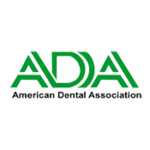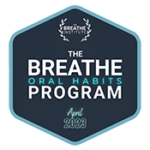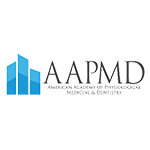Everyone knows that a balanced diet is helpful in ensuring good general health. However, very few people realize that a balanced diet is also responsible for good oral and dental wellbeing. This is because the oral cavity serves as the gateway to the digestive system, and all the ingested food first passes through the oral cavity where it is partially digested. Furthermore, the type of diet we have plays a vital role in determining our dental and general health. Children of all ages are especially at high risk of having carious teeth or developing other medical and dental problems if the parents are not conscious about their dietary intake.
What Not to Eat?
Carbohydrates and Fats
Any diet that is rich in carbohydrates and certain fats should be avoided. Children are especially fond of eating candies and chocolates, all of which contain an excessive amount of processed sugar. Furthermore, bakery products such as breads, pastries, cakes, and pasta, which contain refined carbohydrates, are even more dangerous for the children’s teeth. Research has shown that partial fermentation of the oral cavity starts right from the oral cavity, and as a result the local pH of the mouth is excessively reduced. This acidic environment is highly conducive for the growth and multiplication of caries-causing bacteria, and results in the appearance of widespread carious lesions in the oral cavity (cavities), particularly if the oral hygiene measures are not satisfactory.
Acidic Drinks
Acidic foods and drinks such as lemon, grape and orange juices tend to remove the outer protective layer of the teeth known as the dental enamel, which results in tooth sensitivity every time a hot or cold drink is taken. Similarly, carbonated drinks which have been found to be highly acidic and possess surplus amounts of processed sugars, are detrimental to the integrity of the enamel. Hence, acidic soft drinks and beverages should not be a routine component of our daily diet. When they are consumed, however, the teeth should be brushed promptly.
Minerals
Deficiency of some minerals such as Zinc, Calcium and phosphate in the daily diet is likely to reduce our body’s resistance to curb infection. Studies have shown that mineral deficiency can enhance to chances of periodontal and gingival infections within the oral cavity.
What to Eat
Dairy Products
Dietary milk products such as milk, cheese and yoghurt are a rich reservoir of Calcium and few other essential nutrients. Dietary calcium, is highly beneficial in strengthening and development of bones and teeth. Some dairy products, such as yogurt, contain probiotics which are the good bacteria vital for both oral and digestive health. Look for brands that contain Less sugar, real sugar, and probiotics.
Proteins
A protein rich diet such as meat, eggs, fish and milk are the best sources of phosphorous, which in conjunction with calcium, forms the building blocks for healthy teeth and bones.
Fruits and Vegetables
Almost all fruits and vegetables contain abundant quantities of vitamins and minerals such as Vitamin A and Vitamin C, that are essential not only in preventing oral infections, but also enhancing salivary flow which has antibacterial and anti-caries properties. In addition, natural sugars present in fruits and vegetables have been found “less harmful” than artificially sweetened products. The body is also able to process natural sugars found in fruit, opposed to artificial sugar which can be stored as fat.
The “Good Fats”
Omega 3 fatty acids, in contrast to other fatty diet components, are considered a beneficial dietary constituent, and not only improve general health, but also enhance resistance against periodontal. Gingival and other maxillofacial infections. Good fats can be found in milk, eggs, avocados, olive oil, and peanut butter.
A Final Word
A healthy diet is essential for maintaining an excellent physical and dental health. Apart from that, meticulous oral hygiene maintenance through regular tooth brushing and flossing is required to prevent incidence and progression of dental caries.

















